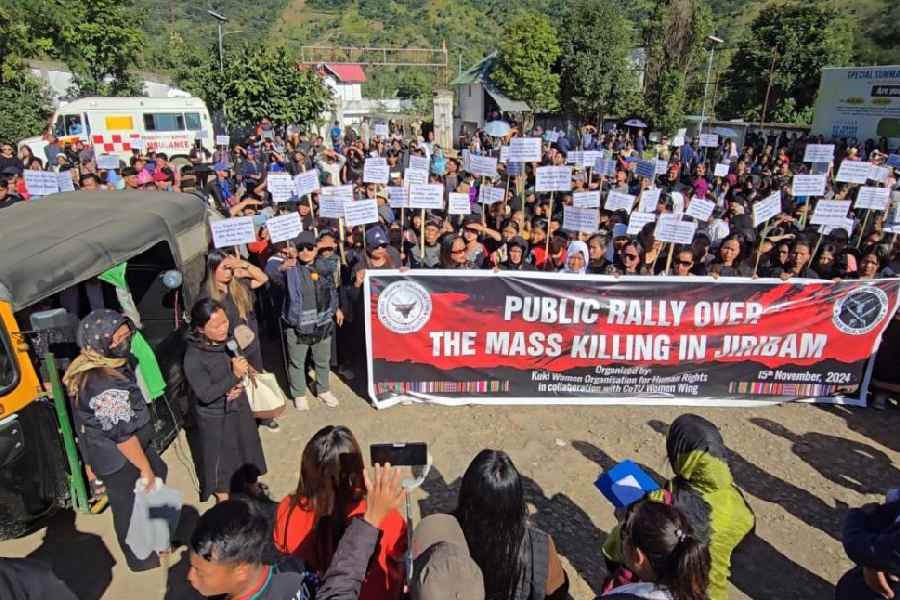The reimposition of Afspa in six police station areas of strife-hit Manipur has evoked criticism, concern and cautious optimism in the state that had seen a 16-year-long hunger strike by activist Irom Sharmila to get the contentious act scrapped.
The Opposition Congress in Manipur said the reimposition of Afspa in different areas of Imphal East, Imphal West, Bishnupur, Jiribam and Kangpokpi districts “is a clear symptom of the complete failure of their (BJP’s) double-engine government in handling the ongoing 18-month turmoil in the state”.
The Centre had on Thursday widened the ambit of the Armed Forces Special Powers Act (Afspa) to contain the escalating violence in the state triggered by the killing of a Hmar woman in Jiribam on November 7.
Manipur PCC president K. Meghchandra Singh said in a post on X that the people of Manipur “genuinely fear and have strong apprehension that the draconian, anti-people Afspa will be reimposed in all the remaining areas of Manipur”.
He asked whether the BJP-led “double engine governments, both at the Centre and in the state, consider that peace and normalcy will return to Manipur by reimposing Afspa” and wondered when Prime Minister Narendra Modi would visit Manipur.
Leading Imphal Valley-based organisations such as the Coordinating Committee on Manipur Integrity (Cocomi) and the All Manipur United Clubs’ Organisation (Amuco) condemned the extension of the central law to six police stations in four valley districts and one hill district of Kangpokpi.
Amuco has claimed the move appeared to provide “leeway” to Kuki-Zo militants to carry out attacks. Cocomi said Kuki-Zo militants were “responsible” for acts of violence in the state.
Political analysts said the Centre’s decision was “inevitable” and aimed at ensuring that the arms and ammunition looted from state armouries could be “recollected” and activities of small militant factions in the six police station areas curbed by using the powers vested in the act. Around 6,000 arms and ammunition were looted from police armouries last year.
Analysts also said using Afspa might “not be a solution to the crisis” because the state had witnessed mass protests seeking the scrapping of the act. Sharmila’s 16-year hunger strike from 2000 to get the act scrapped had attracted global attention.
Even those in favour of a crackdown on the violence maintained that some other provisions should have been explored instead of reimposing Afspa.
“Extending Afspa is understandable amid escalating violence but it will not be good in the long run. A clampdown was necessary but it should have been done under some other provisions because there is a lack of accountability under Afspa. There is a long-standing demand to scrap it altogether,” political commentator and author Pradip Phanjoubam told The Telegraph.
“The State now needs to take control and work on finding an amicable solution because we now have a situation where anybody with a gun considers law to be in his hands,” he said, hoping the additional deployment of forces and reimposition of Afspa “are not aimed at staving off Opposition heat in the upcoming Parliament session”.
Reacting to the reimposition of Afspa, Paolienlal Haokip, first-time Manipur BJP MLA from the Kuki-Zo community, said: “Belated and piecemeal, but right decision.”











